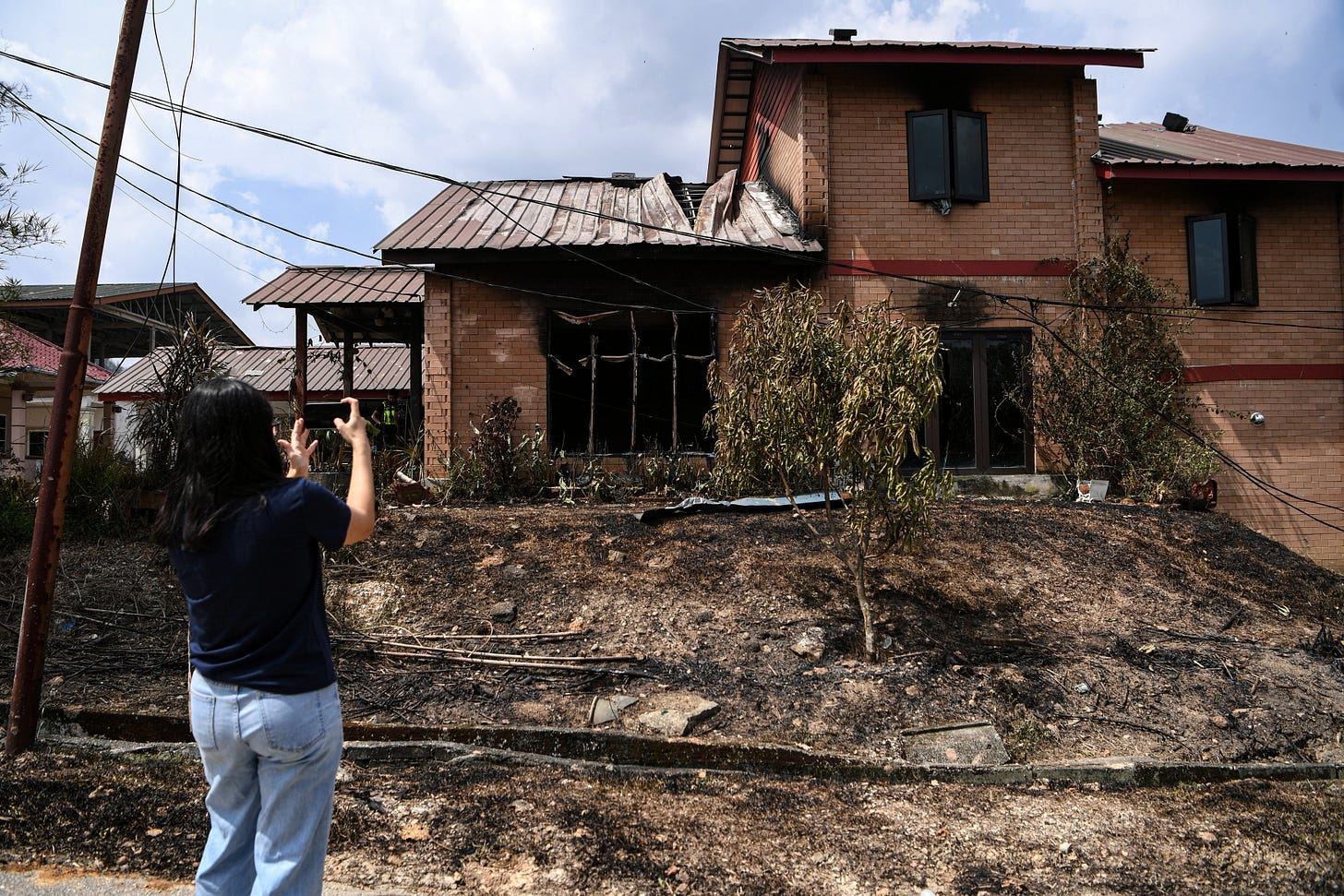A quick thought on the gas pipeline blaze in Putra Heights, Selangor
The 2nd day of Aidilfitri turned into a tragedy when nearly 200 houses & properties were destroyed due to a gas pipeline blaze at Putra Heights, which affected the surrounding areas
At 10 AM, on my way to the office, I received a call from the newsroom asking me to turn back—the fire scene was near my house. It had been years since I last reported directly from an incident. Actually, my assignments in Features Desk had mostly been field visits to affected areas that didn’t require immediate, on-the-ground breaking news coverage. But this time, it was complete chaos for all of us in the newsroom—we were short on staffs due to the Aidilfitri celebrations, with many still on leave & I was attached to General Desk to assist them for the shortage during Raya celebrations.
I turned my car around from Jalan Puchong & headed toward the fire, following the thick smoke that was clearly visible from a distance, even while driving on the LDP highway. That route unexpectedly led me to Kg Sri Aman, Batu 13, Puchong—just across a river from the fire site. When I arrived, the flames were still raging.
Fire trucks were constantly going in and out of the village. As I started recording videos & taking photos, a few villagers approached me, recognising my actions as those of a journalist. Some of them shared their terrifying experiences—many foreign workers from Bangladesh, Myanmar, & Pakistan had jumped into the river to escape, some leaving behind their clothes in a panic, others soaked to the bone from the intense heat. The fire was so fierce that some of their roofs had melted.
Following an ambulance, I arrived at the Pusat Penempatan Sementara (temporary relief centre) in a mosque in Kampung Tengah. There, I listened to those victims who shared their tragic 2nd day of Aidilfitri that had lost everything—their homes burned to the ground, reduced to ashes by the gas pipeline explosion just 200 meters away. Many had nothing left but the clothes on their backs. Read the story here.

Some of my own reflections….
Covering climate change & environmental issues has shaped my perspective on incidents like this. The situation reminds me of the recent wildfires in Los Angeles & South Korea, where residential areas were severely affected. While those incidents were caused by uncontrolled forest fires, but this one involved a gas pipeline explosion—both different in nature but similar in their devastating impact.
A gas pipeline fire doesn’t just cause structural damage; it also affects public health. Toxic gases released into the air pollute the surrounding environment, leading to potential long-term health issues.
This raises an important question - What if the explosion has involved a Carbon Capture, Utilization, and Storage (CCUS) facility? Or even worse—a nuclear power plant or a waste-to-energy incinerator?
Safety concerns surrounding such facilities remain a major debate. Even the smallest misstep - something that seemingly insignificant as a minor leakage or a neglected safety measure could trigger a disaster, in which lives & properties would be at stake. This gas pipeline fire obviously is a fossil fuel infrastructure, highlighting the risks associated with these energy sources—not just immediate destruction but long-term environmental and health consequences too.
The toxic air from the fire (maybe?) the potential for a second explosion, and the psychological toll on affected residents—especially during what should have been a joyous Aidilfitri celebration—are issues that cannot be overlooked. Imagine witnessing such a tragedy unfold before your eyes in your own neighborhood.
In this case, authorities must prioritise safety over profit and should be no compromise when it comes to protecting people & the environment. Unfortunately, greed often prevails—just like how developed countries make grand promises to contribute to the Loss & Damage Fund for developing countries but fail to deliver in reality.
Incidents like this should be served as a wake-up call. Will we learn from them, or will we wait for the next tragedy to happen before taking action?
Disclaimer: The views &opinions expressed in this article are solely those of the writer & do not represent the views, positions, or policies of any affiliated organisations or employers.


